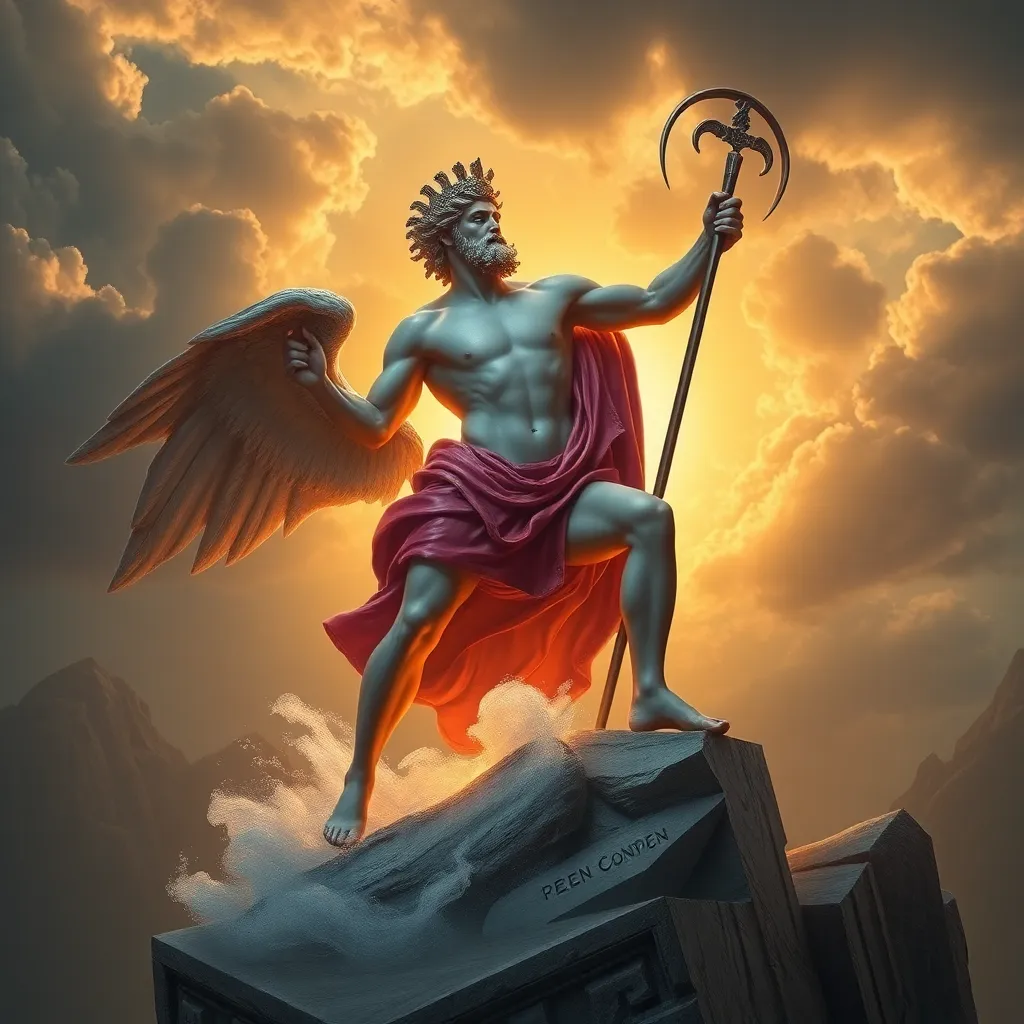The Myth of Perseus: A Reflection of Human Aspirations
I. Introduction
In the pantheon of Greek mythology, the story of Perseus stands out as a quintessential tale of heroism and adventure. Perseus, the son of Zeus and Danaë, embarks on a perilous journey that leads him to confront formidable foes, including the Gorgon Medusa and the sea monster Cetus. His myth is not just a tale of slaying monsters; it encapsulates the essence of human aspirations, encapsulating themes of bravery, identity, and legacy.
The importance of Perseus’s myth extends beyond ancient times, resonating with contemporary audiences. It serves as a reminder of the courage required to pursue our dreams, the struggles we face, and the support we seek along the way. This article aims to explore how the myth of Perseus mirrors human aspirations and the universal journey of self-discovery.
II. The Hero’s Journey: Perseus as an Archetype
The concept of the hero’s journey, popularized by Joseph Campbell, illustrates a universal pattern found in myths across cultures. It typically involves stages such as the call to adventure, facing trials, and achieving a transformative goal. Perseus embodies this archetype, with his quest serving as a model for countless heroes in literature and film.
Perseus’s journey can be divided into several key stages:
- The Call to Adventure: After learning of his destiny, Perseus receives the task of slaying Medusa.
- The Mentor’s Guidance: He is aided by gods, including Athena and Hermes, who provide him with essential tools.
- The Ordeal: Perseus confronts Medusa, demonstrating both courage and cunning.
- The Return: After triumphing, he brings back the head of Medusa, which has far-reaching consequences.
Through these stages, Perseus’s story symbolizes the essence of heroism and the aspirations that drive humanity to overcome obstacles and achieve greatness.
III. Confronting Adversity: The Struggle for Identity
Adversity plays a crucial role in shaping Perseus’s character. Each challenge he faces—from the monstrous Medusa to the treacherous sea monster—forces him to confront his fears and assert his identity as a hero. These struggles reflect the broader human experience of navigating life’s trials.
Fear and courage are pivotal themes in Perseus’s journey:
- Fear: Perseus grapples with the fear of failure and the unknown, a feeling familiar to many.
- Courage: His bravery in the face of danger exemplifies the human capacity to rise above challenges.
Ultimately, the adversity he encounters fosters personal growth and self-discovery, reinforcing the idea that struggles are essential for realizing one’s aspirations.
IV. Divine Intervention and Human Agency
The role of the gods in Perseus’s journey highlights the interplay between destiny and free will. While the gods provide him with gifts and guidance, Perseus must also rely on his own agency to achieve his goals. This dynamic raises important questions about the balance between fate and personal choice in our own lives.
Key aspects of divine intervention and human agency include:
- Guidance from the Gods: Athena and Hermes offer crucial support, illustrating the importance of mentorship.
- Personal Responsibility: Perseus’s actions ultimately determine his success, emphasizing the role of individual effort.
Through Perseus’s story, we learn valuable lessons about the importance of seeking help while also taking charge of our own destinies.
V. The Symbolism of Perseus’s Weapons and Gifts
Throughout his journey, Perseus is equipped with several significant gifts, including a reflective shield, a magical sword, and winged sandals. Each of these items carries metaphorical weight, representing the tools and resources necessary to pursue one’s goals.
The analysis of these gifts reveals important insights:
- Shield: Represents wisdom and self-reflection, allowing Perseus to confront challenges without being blinded by fear.
- Sword: Symbolizes strength and decisiveness in overcoming adversity.
- Winged Sandals: Signify freedom and the ability to rise above limitations.
The importance of preparation and strategy is underscored by Perseus’s thoughtful use of these gifts, reminding us that success often requires the right tools and a well-thought-out plan.
VI. Perseus and the Concept of Legacy
The impact of Perseus’s actions reverberates through history, influencing future generations of heroes and shaping cultural narratives. His quest not only fulfills personal ambitions but also contributes to a larger legacy that transcends time.
Key themes related to legacy include:
- Fame and Recognition: Perseus’s feats solidify his place in mythology, reflecting humanity’s desire for acknowledgment.
- Immortality: The stories of heroes like Perseus lend a sense of permanence to their achievements.
This exploration of legacy invites reflection on how our personal aspirations contribute to a collective narrative that shapes the future.
VII. Contemporary Relevance of the Myth
Perseus’s story continues to resonate in modern culture, appearing in literature, film, and art. His journey serves as a timeless reminder of the enduring nature of heroism and aspiration in today’s society.
Contemporary connections include:
- Literature: Many modern novels draw inspiration from the hero’s journey, echoing themes found in Perseus’s myth.
- Film: Movies such as “Clash of the Titans” reinterpret Perseus’s adventures, highlighting the relevance of his story.
The lessons learned from Perseus, such as courage in the face of adversity and the pursuit of personal goals, remain applicable to contemporary challenges, encouraging individuals to reflect on their own dreams and aspirations.
VIII. Conclusion
In examining the myth of Perseus, we uncover a rich tapestry of themes that reflect the human experience. From the hero’s journey and the confrontation of adversity to the balance between divine intervention and personal agency, Perseus’s story serves as a powerful mirror of our aspirations.
As we reflect on the key points discussed, we are reminded of the importance of courage, preparation, and the pursuit of legacy in our own lives. The myth of Perseus encourages us to embrace our journeys, confront our fears, and strive for our aspirations, ultimately contributing to the collective narrative of humanity.
Let us carry forward the lessons of Perseus as we navigate our own paths, striving to achieve our dreams and leave a lasting legacy.




